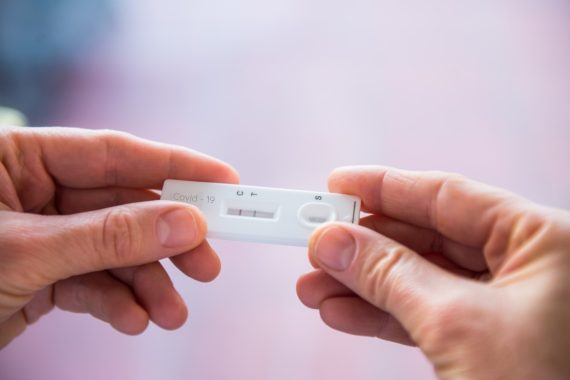Scrapping Covid self-isolation ‘could have serious impact’ on NHS, BMA warns

The BMA has called on the Government to provide the evidence for scrapping the requirement for self isolation if you have Covid-19 in England from the end of this month.
Prime Minister Boris Johnson announced in Parliament yesterday (9 February) that he intends to lift all remaining legal requirements – including for self-isolation – a month ahead of schedule.
But Dr Penny Toff, chair of the BMA public health medicine committee, said with case rates still incredibly high and hundreds of deaths each day, this ‘runs contrary to good public health practice’.
‘We must question on what scientific basis this decision is being made and the Government needs to show the evidence for its proposals.
‘Yesterday the UK recorded over 10,000 more cases than on the 10 December – when the Government in England moved to Plan B, introducing more protective measures, rather than removing them.
‘Meanwhile ONS figures released today show more than 1 in 20 people in England living with Covid-19 in the most recent week,’ she said.
Dr Toff added that while it was promising that hospitalisations are falling, there are still more than 13,000 patients with Covid-19 in UK hospitals.
‘So any sharp rebound of case rates and hospitalisations as a result of this decision, could have a serious impact for the health service as would greater staff absence from illness – adding to the workforce shortage and further delaying providing non-Covid healthcare.’
With vaccination continuing to provide the best protection against serious illness and death for most people, continuing to encourage people to wear masks in crowded places, testing and isolating when infected will also be very important,’ she added.
‘For people who are clinically vulnerable, cannot be vaccinated or in whom vaccines are not as effective, removing these simple but key protective measures could mean they have to shut themselves away from society to avoid the risk of severe illness or death.’
If the legal requirements are removed, there must be clear public health guidance that people should not go to work, to educational settings, or socialise while ill and adequate sick pay must be guaranteed for everyone, including casual workers, the BMA said.
The Government has said it would outline its strategy for living with Covid when Parliament returns after recess on the 21 February.
Dr James Gill, a GP and honorary clinical lecturer at Warwick Medical School, said patients frequently raise difficulties they can face at work when it comes to taking sick leave and feel forced to carry on or return before they have recovered properly.
‘Frankly I see no justifiable reason for the scrapping of this law, certainly not from the perspective of patients, nor from a business case either as the omicron variant is highly contagious, and thus more likely to spread through a staff group if people feel compelled to come to work with a mild Covid-19 infection.’
He added that as with any significant viral infection, if a patient pushes too hard in the aftermath of the infection, it will slow their recovery.
Dr Gill also said he had significant concerns that people would become complacent, resulting in further spread.
Pulse July survey
Take our July 2025 survey to potentially win £1.000 worth of tokens

Visit Pulse Reference for details on 140 symptoms, including easily searchable symptoms and categories, offering you a free platform to check symptoms and receive potential diagnoses during consultations.
Related Articles
READERS' COMMENTS [1]
Please note, only GPs are permitted to add comments to articles












Admissions Down
Cases Down
Deaths Down
Would it be unprofessional to remind my colleagues in the BMA that anxiety disorders are treatable?